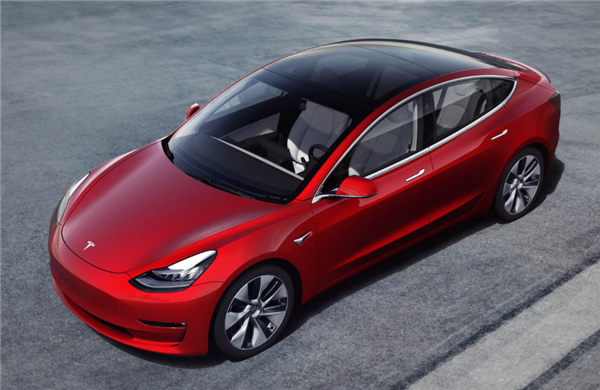China’s homegrown new energy PV wholesales tumble 35% over a year ago
Shanghai (Gasgoo)- Automakers in China sold roughly 87,000 new energy passenger vehicles (NEPVs) in June, representing a year-on-year plunge of 35%, according to Cui Dongshu, secretary general of the China Passenger Car Association (CPCA).
With the pandemic easing in the country, the NEV market is being bolstered by new driving forces, while the sales are still struggling to recover for cities where the purchase restriction policies are implemented, said Mr. Cui.

(Tesla Model 3, photo source: Tesla)
The wholesales of all-electric PVs slid 39% from the previous year to 69,260 units. The downturn wholly resulted from the 41%, 57% and 61% decrease in the sales of mini-sized, small-sized and compact vehicles. However, the sales of mid-sized all-electric BEVs skyrocketed 1094% to 18,275 units, which significantly held back the overall drop.
With 17,736 units sold, the plug-in hybrid sector posted an 11% decline over the year-ago period. The compact segment saw its sales fall 21% to 8,197 units, while the full-sized vehicle segment surged 28% year over year to 3,328 units.
For the first half of the year, NEPV's wholesale volume totaled 329,532 units, a 43% downward movement over the previous year.
The volume of NEPVs delivered to consumers reached 84,400 units last month, tumbling 39.1% over a year ago.

(All-new Qin EV, photo source: BYD)
The sluggish year-to-date sales mainly stemmed from the higher year-ago base number, said Cui Dongshu. Last year, China's integrated subsidies for the NEVs featuring a range of over 400km plunged from 75,000 yuan ($10,726) per car in May to 25,000 yuan ($3,575) per car at the end of June, which was lower than the median level of European countries or the U.S. As the NEV industry is becoming more market-driven, the sale pressure for automakers and dealers is getting increasingly severe.
There were other factors accountable for the bleak NEV sales, according to Mr. Cui. Consumers' enthusiasm in buying NEVs was cooled because of the coronavirus-caused slump in global oil price that led to the decrease in NEV's cost performance, and some negative news about NEV safety. Besides, the demands were whittled down as the auto replacement dropped in car hailing field when more people decided to use public traffic tools during the pandemic prevention and control period.
Cui also added that NEVs were further eclipsed by the traditional oil-fueled vehicles' demands which were spurred by local governmental incentives and other measures such as granting more license plates.

The Tesla Model 3 was still crowned the best-selling China-made NEPV model by June retail sales, outnumbering the second runner-up, the all-new Qin EV, by 10,848 units. Among the top 10 models, the NIO ES6 boasted the biggest year-on-year growth with 2,476 units sold. The BAIC EU Series was ranked tenth, posting a precipitous plunge of 88.8%.
Regarding the first-half performance, the Model 3 was still the most popular one for consumers. The deliveries of the Aion S, the Chery eQ and the NIO ES6 soared 474.1%, 2735.6% and 47.7% respectively.

The association expects that the NEV consumption environment for the second half of the year will be improved over the first half, which is good for quarter-over-quarter increase for the third and fourth quarters' NEV sales and year-on-year growth in the second-half volume.
Gasgoo not only offers timely news and profound insight about China auto industry, but also help with business connection and expansion for suppliers and purchasers via multiple channels and methods. Buyer service:buyer-support@gasgoo.comSeller Service:seller-support@gasgoo.com







